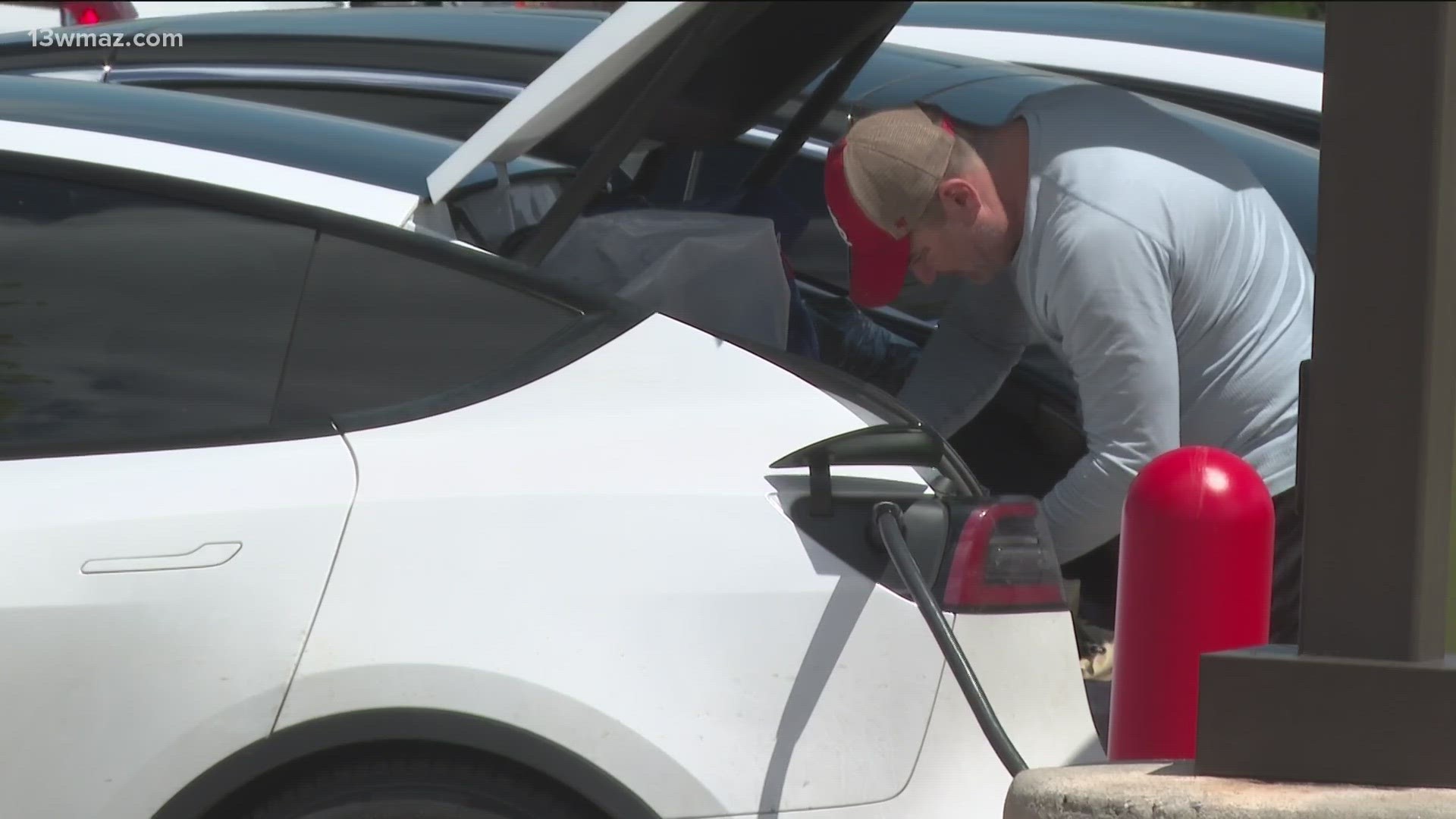WARNER ROBINS, Ga. — Electric vehicles are becoming more popular. The Georgia Department of Economic Development says, as of September 2022, 42,500 Georgians have registered electric vehicles.
This number is expected to rapidly increase. Last year, the state received $135 million in federal funding to build more charging stations. Now, lawmakers want to create a standard way to generate revenue from each station.
Aaron Fiser loves his Tesla.
"I'm a huge fan of the car, I've had it since September, and it is the wave of the future," he said.
Fiser loves the cars speed, efficiency and price.
"Typically the average stop runs around about $20 to $22, and I get around 300-320 miles per charge," he said.
Other users, like Granville Powers, score cheaper prices for a charge.
"It's between $5 and $10 to do that. That will get us about as far as a tank of gas would get us on a regular car," Powers said.
He says the charging network is one of the reasons they chose a Tesla.
In Georgia, charging stations charge for the amount of time spent sitting at the pump. Under Georgia Senate Bill 146, folks will pay for the kilowatt power they use, like paying for gas by the gallon.
"I don't think its gonna make much of a difference for us, because if it does, I don't even know if we'd notice it. We just don't really pay attention to it that much. Billing is automatic. Unless it gets to be really outrageous, I don't think we'd even really notice," Powers said.
Fiser travels for work, and has used pumps that charge by the kilowatt, he says prices equal out.
"I've noticed depending on where you stop, and how long you stop for, it's something that kind of evens itself out throughout the length of a trip, so there's really not much of a difference," Fiser said.
The bill also adds a state excise tax of 2.84 cents.
"Tesla supplies these, but we still have to pay for them. Just like you do a gas pump. I think there may come a point in time if there's enough taxes levied on electricity that it may equal out, but hopefully we don't get there too soon," Fiser said.
Under the bill, charging stations will also be regulated by the state department of agriculture. Each station will have to post their prices, and have to follow the said price. State inspectors will also check to make sure customers get the electricity they pay for.
If Governor Brian Kemp signs this bill these rules would begin January 1, 2025.

